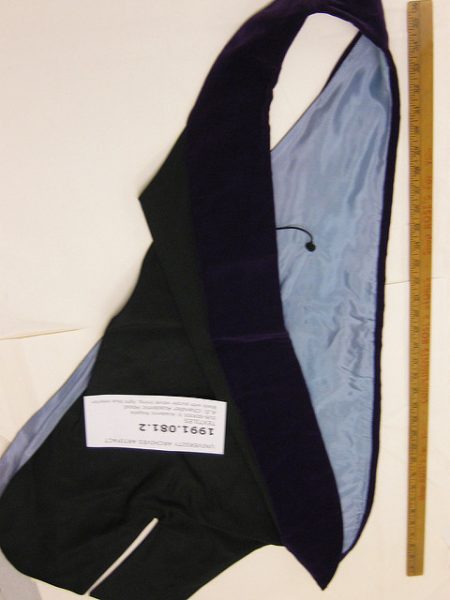Brandeis University
Massachusetts
1948



The Intercollegiate Bureau of Academic Costume (IBAC) assigned Brandeis University a single color hood lining in “Wedgwood blue” not long after the university was founded in 1948, which was how the lining was described in a list compiled by Kevin Sheard in Academic Heraldry in America (1962) and in IBAC lists from 1969 and 1972.
This description is a linguistic sleight-of-hand by the IBAC, because the Wedgwood blue hood lining created for Brandeis was no different from the light blue hood lining the Bureau had already assigned to the University of Maine around 1908. To avoid this duplication, here Brandeis has been reassigned a hood lining that is tailored from Wedgwood blue velvet, not silk or satin.
At an unknown date, Brandeis adopted a “custom” doctoral gown tailored from from fabric in what the university defines as its new shade of “royal blue”, with black velvet facings and sleeve bars edged with white piping. An embroidered patch representing the university seal is sewn to the upper part of each facing. A gown of this type from the University Cap & Gown Company (Balfour) is illustrated on the right.


It is not known when or how Brandeis University adopted its school colors.
The traditional colors of the university were white and “Wedgwood blue”, the color most commonly associated with the popular 18th century British earthenware designed by Josiah Wedgwood. Wedgwood blue is often described as a gray-blue shade of light blue or pale azure blue.
Today Brandeis defines its school color as “royal blue” but the university’s traditional shade of blue was lighter.
One should also note that, historically, “royal blue” was significantly darker than the blue Brandeis is using today. Traditionally, royal blue was a dark blue (or navy blue) with a hint of purple, not the vibrant blue shade that Brandeis describes as “royal blue”.
